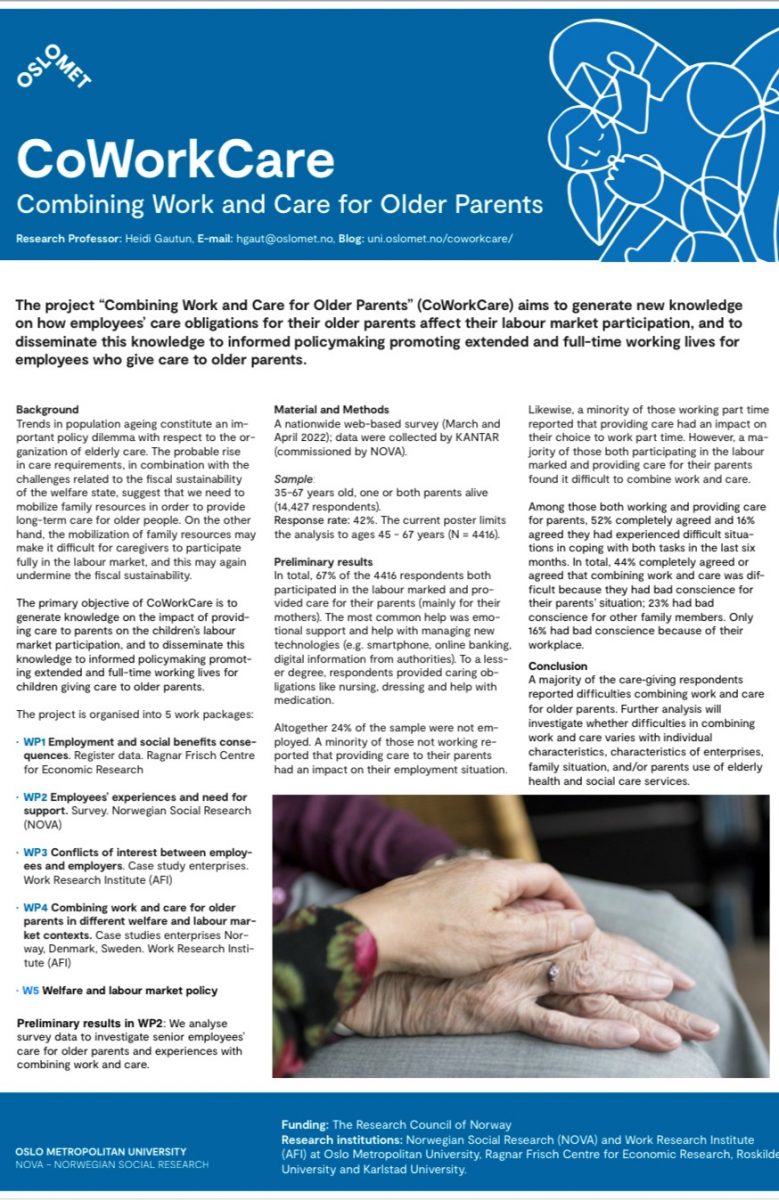Qualitative studies in workplaces
One of the aims of this project is to get a better understanding of what it actually means for employees to combine work and care for ageing parents, and whether these experiences vary between different sectors of the labour market. To get to the lived experiences of informal caregivers who are juggling care obligations with a career, we have talked to employees, union representatives and employers at four different workplaces in Norway. These workplaces represent four different sectors of the Norwegian labour market. The four workplaces that was recruited for this study represents public administration, health care, retail and production. These sectors were chosen with the aim of securing a variety in workplaces that covers a wide range of the Norwegian labour market, and included workplaces with flexible work arrangements, fixed working hours and shift work.
In the span of nine months, from June 2022 to March 2023, we have spoken with 35 employees, 12 union representatives and 13 leaders. The employees we have spoken with have all willingly shared their personal experiences of work-life conflicts, the importance of support from their employers as well as the whish for further support. While the stories differ, they do show the important role that family care plays in filling gaps in the formal care system. Further, it also points at the balancing act of fulfilling your duties as a son or daughter as well as your duties at work. In this act, the importance of having an understanding leader becomes crucial.
